The sign outside of Tabb's, a restaurant in the Riverview section of Norfolk, had two words on it. "Shad Roe." So I'll be heading there with a couple of friends tomorrow for lunch. We like the restaurant because of their local seasonal seafood. In the fall we go there for oysters, in May we drop by for soft shell crabs. Tomorrow it will be, for me at least, shad roe. I've never had it, but I've always wanted to give it a try.

Seeing that sign reminded me of this time last year when I was invited to join Jeff, above, a Native American, for an afternoon of shad fishing on the Pamunkey River. Jeff is a member of the Pamunkey tribe and lives on their reservation. The tribal lands are on the point of land on the left side of the map, just below the road marked Pocahontas Trail. Jeff launched his skiff along with maybe a half dozen other members of the tribe. He ran downriver and fished the stretch of water below Johnson Landing. It was a beautiful, quiet river.
There are a handful of tribes in the area and two of them, the Pamunkey and the Mattaponi, have reservations that were created by treaties with England that date back to the 1600's. All the these tribes were part of the once powerful Powhatan Confederacy that occupied eastern Virginia. It was on their land that the Jamestown colony was founded.
The history of these tribes dates back thousands of years and fishing these small rivers has been both a source of food and an important part of the tribal tradition. I've always found the Native Americans to be very friendly but at the same time very private. I felt honored to be allowed a peek at their way of life. Jeff was a great host, friendly and knowledgeable. He talked a lot about the tribe and the fishing. He is involved with some archeological digs on areas thought to be historic tribal centers. Like a lot of tribe members he had left the reservation when he was young but found the urge to return home as he grew older.
Jeff set his nets in the late afternoon and then motored towards shore where he met up with another member of his tribe. This was an older gentleman, a man who had in fact taught Jeff how to fish. We sat along shore and made small talk while the nets drifted slowly downriver.
After a little more than an hour we ran back out on the river. It was easy to see that he had caught some fish, the floats bobbed up and down as the fish struggled in the nets. I think Jeff brought in about two dozen American Shad. Some of the fish were ripe and he milked those fish for their milt and roe. He would carry that back to the tribe's fishery where the eggs would be hatched and the fingerlings eventually returned to the river. The rest of the fish - and roe -were harvested for food.
It is an afternoon that I will remember for a long time. I have of course visited Jamestown and nearby Williamsburg to see the historical sites there. But that history dates back just 400 years. A few centuries hardly compare with the 10,000 year history of the Native American tribes. And this bit of history wasn't in a museum. It was truly a living history, one that I got to see as we drifted down a gentle river in Tidewater Virginia.
I had a quiet evening at the office yesterday. Not much going on so I walked over to the Elizabeth River waterfront. No snowbirds anchored out in Crawford Bay. Too cold. But in a week or two we'll start seeing the boats heading north along the ICW.
Weather looks iffy for sailing this weekend, but I do hope to get out for a while on Sunday.
steve











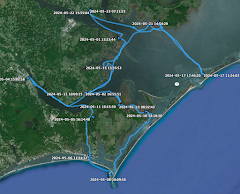
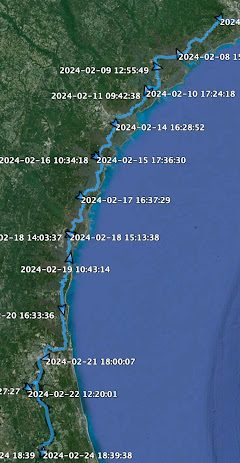

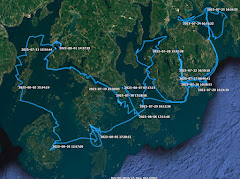

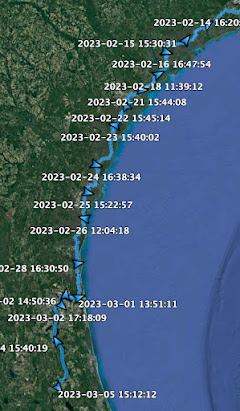

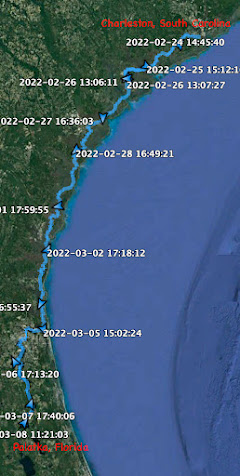
























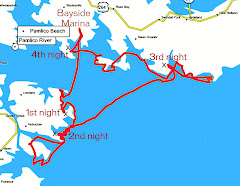


1 comment:
Great post, Steve. I grew up eating shad roe in scrambled eggs for breakfast on cool damp mornings on my grandparents screened porch on the Rappahannock River, and nowhere else. So that brought back some memories.
Thanks,
Barry
Post a Comment